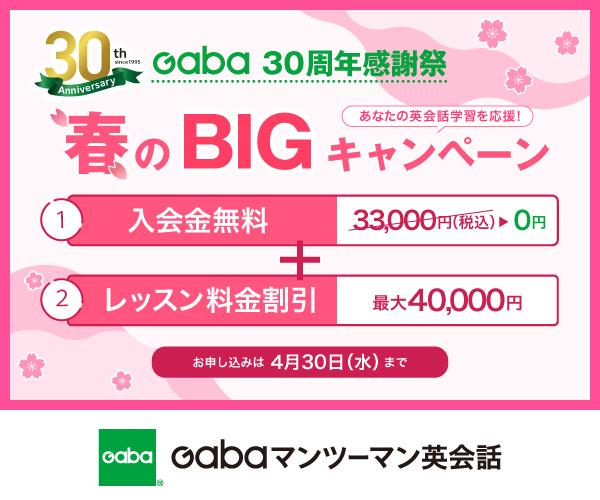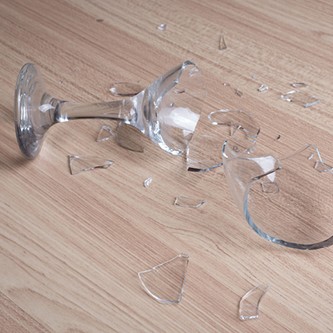英語記事に慣れる「サクっと読む英文」
2017.7.18
Global beer sales down
Read the article to find out what factors are behind people buying less beer.
ビールの売り上げが減少している背景にはどのような要素があるのか、記事を読んでみましょう。

Global alcohol sales decreased by an average 0.3% annually for the previous five years, so the sudden 1.3% drop in 2016 surprised people like Alexander Smith, editor of IWSR Magazine. He said that improving global economic conditions and an increased number of legal-age drinkers should have increased alcohol sales, but this didn’t happen.
Smith stated that weakness in emerging economies was one reason for the fall in beer sales. China, Russia and Brazil all had significant drops in beer sales.
Diageo, the owner of Scotch whisky brand Johnnie Walker, said alcohol drinking in developed countries has been falling for the last 30 years. However, data collected by the IWSR shows that the global market for spirits has grown.
People are drinking less beer, but drinking more spirits. This is a problem for large beer manufacturers. Anheuser-Busch InBev, which owns Budweiser, gets 30% of its profits from North America. In the US beer market, major beers like Budweiser also face competition from craft beers. Craft beers equal more than 20% of the US beer market’s value.
The five major beer companies in Japan; Asahi, Kirin, Sapporo Holdings, Suntory Holdings Ltd., Orion Breweries, are dealing with similar problems. The Brewers Association of Japan said the amount of beer sold by the big five beer companies has declined for more than ten years straight. In 2016, it was 24% lower than the amount sold in 2006.
Part of this decrease is due to Japan’s aging population. Another reason is that consumers have been choosing other types of alcohol. In 2016, Japan’s National Tax Agency reported an increase in wine and whiskey drinking over the previous ten years.
People in Japan are drinking more spirits and wine, but the recent rise of craft beer has created new excitement in the beer industry. Craft beers now account for about 2% of beer sales in Japan, but some people think it will grow to 3% or 4%. Craft beers are usually made in smaller amounts by smaller beer companies, using unique and unusual ingredients.
Previously, Japan’s beer tax laws made it difficult for smaller craft beer producers to compete against big beer companies. Recently, Japan’s Finance Ministry announced plans to change tax rates for beer and beer-like drinks, like happoshu, starting in 2020. In 2018, the ministry will increase the list of ingredients that beer makers can use to make beer. The government hopes this will help the economy, and help Japanese beer companies sell their products in other countries.
Kirin, one of Japan’s largest breweries, predicts the amount of craft beer produced in Japan will double from 2014 to 2017. In an interview with Nikkei, a manager at Kirin stated that craft beer could revitalize beer’s image in Japan. Kirin has bought 25% of American craft beer maker Brooklyn Brewery. Kirin has also invested in Yo-Ho Brewing, Japan’s largest craft brewery. Yo-Ho is one beer maker trying to sell its beer overseas. Yo-Ho will soon begin to supply its beer to about 5000 7-Eleven stores spread throughout Taiwan.
Rising enthusiasm for craft beer in Japan, combined with new regulations, means there are exciting times ahead for beer makers and drinkers.
Global sales of alcohol fell by 1.3% in 2016. There was a 1.8% fall in beer sales. Global alcohol sales fell by about 0.3% each year for five years before 2016.
The International Wine and Spirits Record (IWSR) reported the fall in global sales of alcohol. The report surprised Alexander Smith from IWSR. He was surprised because the global economy is getting better. Smith said this should help alcohol sales. But the economies of China, Russia and Brazil are weak. This may be hurting sales.
Diageo is the company that owns Scotch whisky brand Johnnie Walker. Diageo reported alcohol drinking in developed countries has been falling for 30 years. However, data from IWSR shows that global sales of spirits have grown. People are drinking less beer, but drinking more spirits.
This is a problem for large beer companies like Anheuser-Busch InBev, the owner of Budweiser. The company gets 30% of its profits from North America. In the US beer market, major beers like Budweiser also compete with craft beers. Craft beer sales are more than 20% of the US beer market’s value.
The five major beer companies in Japan; Asahi, Kirin, Sapporo Holdings, Suntory Holdings Ltd., Orion Breweries, also have similar problems. The Brewers Association of Japan said the amount of beer sold by the big five beer companies has fallen for more than ten years. Beer sold in 2016 was 24% lower than the amount sold in 2006.
There are many old people in Japan. They don’t drink a lot of alcohol. Also, people are drinking other types of alcohol. In 2016, Japan’s National Tax Agency reported that people in Japan are drinking more spirits and wine.
Recently many people in Japan have become interested in craft beers. These beers are usually made in smaller amounts by smaller beer companies, using special or unusual ingredients.
Before, Japan’s beer tax laws made it difficult for small beer companies to make money. In 2020, Japan’s Finance Ministry will change tax rates for beer and beer-like drinks, like happoshu. In 2018, the Finance Ministry will let beer makers use a larger range of ingredients to make beer. The government hopes this will help Japanese beer companies sell their products in other countries.
Kirin is one of Japan’s largest beer companies. Kirin believes the amount of craft beer made in Japan will double from 2014 to 2017. Kirin has bought 25% of American craft beer maker Brooklyn Brewery. Kirin has also bought part of Japan’s largest craft beer company, Yo-Ho Brewing. Yo-Ho will soon supply its beer to about 5000 7-Eleven stores in Taiwan.
キーフレーズ
fall by ~ ~だけ減少する(%など)
decline 減少する
数量が減る、少なくなる、という意味です。
例:The number of tourists coming here has been declining year after year.
(ここにやってくる観光客の数は年々減っている。)
例:The number of tourists coming here has been decreasing year after year.
(ここにやってくる観光客の数は年々減っている。)
ただし、価値や影響力、体力、勢いなどの低下・衰退を表すときには、“decrease” ではなく、“decline” を使います。
例:The decline of the Roman Empire was brought about by its rapid expansion.
(ローマ帝国の衰退はその急速な拡大によって引き起こされた。)
should have + 過去分詞 ~するはずだったのに
あることが起こるはずだったのにそうならなかった、もしくはあることをするべきだったのにしなかった、という意味の表現です。
例:She should have won the talent competition.
(彼女が特技の審査で優勝するはずだったのに。[※優勝しなかった ] )
state 述べる
公式に、または明確に考えや事実などを述べる、もしくは書き記す、という意味です。
例:He stated his intentions clearly.
(彼は自分の意図をはっきりと述べた。)
emerging 新たに出現した
significant 大幅な、著しい
~ (period of time) straight ~(ある期間)連続で
何時間、何年間などある期間連続で、という意味の表現です。時間・日・月・年など、どの単位でも使うことができます。
例:I worked for twelve hours straight without a break.
(休憩を取らず12時間連続で働いた。)
類義語:“for the tenth straight year”、“for ten years in a row”、“every year for the past ten years”


 【Gabaからのお知らせ】
【Gabaからのお知らせ】 【特集】
【特集】 【英単語の正しい使い分け】
【英単語の正しい使い分け】 【使いこなす句動詞】
【使いこなす句動詞】